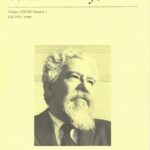“Why We Pray With Our Feet: A Conversation with Cohosts Emelda and Trudy”
This is how Emelda Decoteau and her mother describe the first episode of their podcast:
What does it mean to pray with our feet? How can we spark change through conversation one moment, one day at a time? What is the biblical basis for activism (Proverbs 31:8–9, Matthew 25:40, Amos 5:24, and Isaiah 54:6–7).
All this and more on our first episode lifting up the intersection of faith and social justice / activism.
We delve into:
- Sharing God’s grace and love with folks who have different lived experiences than us.
- Why activism must be intersectional—immigrant children in detention centers, folks caught in the web of mass incarceration, climate justice, dismantling white supremacy—all of it is connected.
- The story behind the phrase “pray with our feet,” a quote from Rabbi Abraham Joshua Heschel.
- How we connect to God through our creativity.
- Why we’re so excited for you to hear our upcoming guests, some include: Rev. Amanda (founder of Raising Imagination, an online community, and co-pastor at Middle Church); Avril Sommervile, activist and writer (Journey of a Life on Purpose); Rev. Lyvonne Proverbs (founder of Beautiful Scars and Emmy award–winning media producer); and Dr. Marisela Gomez, author, activist, and public health physician. Watch her TEDx talk.
